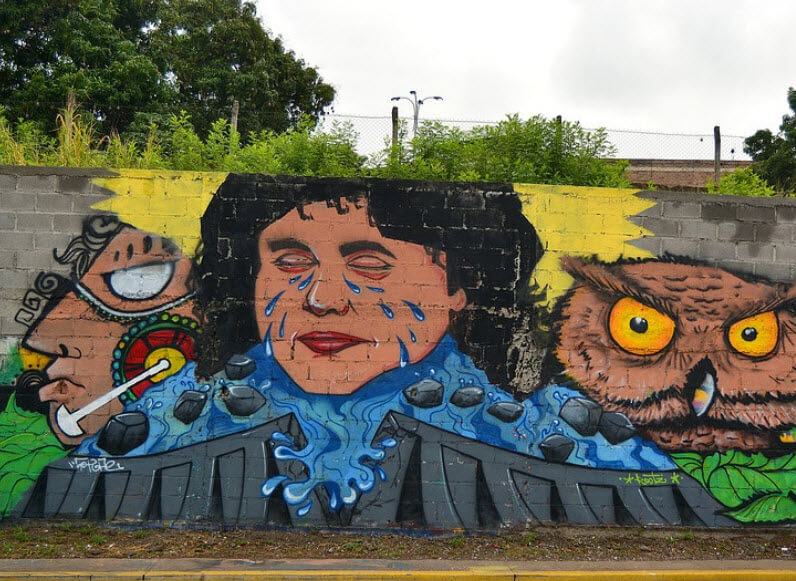Recognition of the Lenca people in the “Gualcarque Fraud” case: a step towards justice
- News
18 October 2021

On August 10, 2021, the Constitutional Chamber of the Supreme Court of Justice of Honduras granted an action of unconstitutionality (amparo) requested by the Consejo Cívico de Organizaciones Populares e Indígenas de Honduras (Civic Council of Popular and Indigenous Organizations of Honduras, COPINH) concerning its exclusion in the case “Fraud on the Gualcarque”.
Following this ruling in favor of the victims, the Anti-Corruption Circuit Court reintegrated COPINH into the trial, which was brought back to the point in time when the organization was excluded.
This outcome guarantees COPINH, and in particular the victims it represents, the right to participate as a party in the trial that will determine whether or not officials have committed acts of corruption in the concessions of the Agua Zarca hydroelectric project on the Gualcarque River, located in western Honduras.
Why is this action important?
The alleged acts of corruption have led to a series of violations of the rights of the Lenca people and their leaders, with the defense of their territory being the main reason for their criminalization and the violence suffered.
The Agua Zarca hydroelectric project is being developed on the territory of the Lenca people’s communities, organized and represented by COPINH. The organization has denounced from the outset that its construction affects the rights of the Lenca communities to territory, water and human integrity and that its approval was obtained through illegal acts.
COPINH led the mobilization of victims with the support of the Bufete Estudios para la Dignidad. The organization quickly became involved in criminal proceedings as a representative of victims, with the help of private prosecutors and it actively participated as a plaintiff and initial party. However, it was subsequently deprived of this status, implying the denial of its status as a victim in the proceedings.
The Supreme Court’s resolution of the constitutional complaint reverses this situation. The Court affirmed that the indigenous peoples of Honduras must be guaranteed their right to decide on their own priorities in relation to measures affecting their lives and therefore recognized the Lenca people as victims and ordered the restitution of their right to participate actively in criminal proceedings. To this end, the Court relies on the provisions of International Labor Organization (ILO) Convention 169 and other international human rights standards.
The judgment also recognizes the rights of victims of grand corruption and provides them with a pathway to justice by determining that there is a legitimate cause for claiming victim status in criminal proceedings.
International support for the action
COPINH and the Bufete Estudios para la Dignidad have established a network of national and international alliances around the case to support communication and advocacy actions. These alliances served to strengthen the procedural position of the victims and to reiterate the need for a speedy resolution of the case, in order to guarantee the effectiveness of actions in the various courts.
As part of these alliances, Lawyers Without Borders Canada and the International Human Rights Clinic of the Université du Québec à Montréal (Clinique internationale de défense des droits humains de l ‘Université du Québec à Montréal, CIDDHU) submitted an amicus curiae to promote the speedy resolution of the case and the consideration of international human rights standards. Two other amicus curiae briefs were also submitted to the Supreme Court by the Due Process of Law Foundation (DPLF) and the International Federation for Human Rights (FIDH). ASFC prepared a series of fact sheets on the progress and lessons learned in the practice of strategic litigation in Honduras.